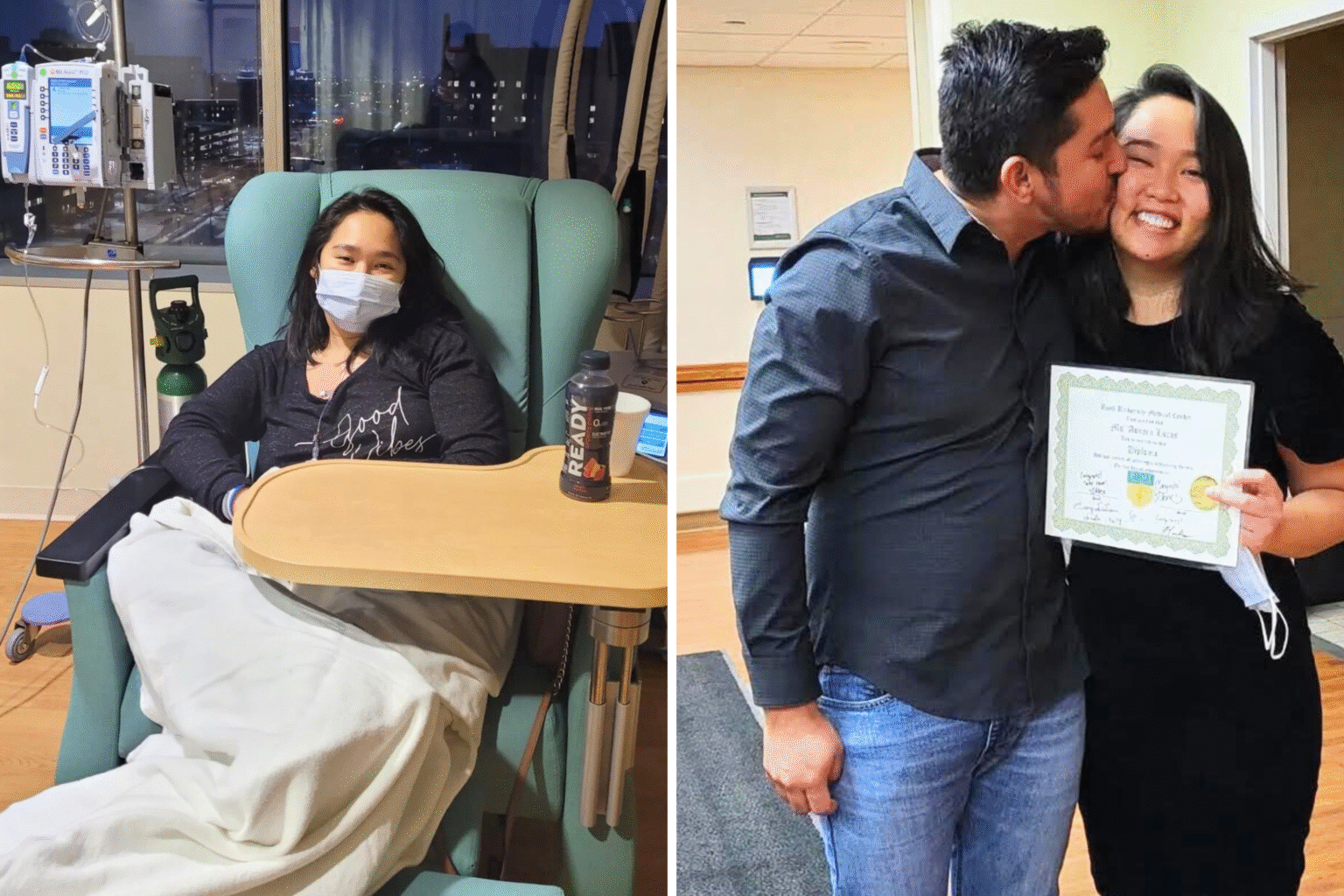A woman who thought that her health problems were caused by stress and anxiety has revealed how the symptoms she documented online ultimately led to a shocking diagnosis at just 28 years old.
Aurora Lucas, now 32, shared her story on TikTok (@aurorainnalucas), gathering nearly half a million views.
Speaking to Newsweek over the phone, the virtual special education teacher explained that what began as chest pain, persistent coughing and overwhelming fatigue turned out to be stage 3A lung cancer.
“Initially, I thought I was having a stroke or something,” she said, recalling the first attack of chest pain just two days after buying her first home in August 2021.
“My sister suggested it might just be anxiety,” Lucas from Chicago, Illinois, recalled. “I didn’t go to the emergency room because I didn’t want to pay $200 only to be told nothing was wrong.”
A Cough That Wouldn’t Go Away
By September, as she prepared to return to her teaching job in a school, Lucas developed a persistent cough. At first, she wondered if it was COVID. Within weeks, the cough worsened—so much so that she could no longer finish sentences, her throat constantly irritated.
“I grew up in an immigrant household where work was the most important thing,” she said. “I refused to see a doctor. I just tried to push through.”
Her colleagues, however, urged her to seek help. When she finally saw a physician, she was reassured her symptoms were minor. “They told me I was young, that I’d be fine with water and honey. I was speechless, but I had to take their word for it.”
Red Flags and Medical Dismissal
A coworker continued to insist something was wrong, and when Lucas’ chest pain returned, she went to the emergency room. Doctors found abnormalities, but her insurance limited her access to further testing.
She was even diagnosed with Wolf-Parkinson-White syndrome, a rare heart condition—something doctors later disputed. “I was in and out of the emergency room, exhausted, coughing, in extreme pain, and falling asleep at the wheel. I knew something was being missed,” she recalled.
By November, her symptoms escalated—nighttime back pain, fatigue, and worsening cough. She remembered medical trainees examining her fingernails. “They later told me that curved nails could be a cancer symptom,” she said.
Despite repeated hospital visits, her primary physician continued to reassure her that she was “fine.” Lucas described the experience as “medical gaslighting,” adding: “Being dismissed over and over because I was ‘too young’ was more terrifying than the diagnosis itself.”
Lung cancer—the second most common cancer in both men and women in the United States—typically affects people aged 65 and over. However, research published last year by the American Cancer Society found that cancer patients in the U.S. are “increasingly shifting from older to middle-aged individuals.”
The disease is often associated with smoking, but as Lucas’ case shows, lung cancer can also affect people who have never picked up a cigarette in their lives.
The Diagnosis
A PET scan eventually revealed abnormalities, but Lucas claims her doctor failed to review the results with her. Instead, her cousin—who works in medical diagnostics—saw the images and broke down crying.
On December 6, 2021, after finally switching hospitals and doctors, Lucas was diagnosed with stage 3A lung cancer. She was just 28 years old and a non-smoker.
“I wasn’t terrified—I was relieved to finally have an answer,” she said. “But the 3A part scared me. What started as a tiny nodule had grown into three lime-sized tumors wrapped around my lymph nodes.”
Preserving Fertility
Before beginning aggressive treatment, Lucas delayed care briefly to undergo fertility preservation. Doctors collected her eggs, allowing her the possibility of having children in the future.
Experts say this is becoming a growing consideration for young adults facing cancer. Newsweek previously spoke with Dr. David Liska, chair of colorectal surgery at Cleveland Clinic, who explained that modern oncology now incorporates fertility and sexual health preservation as a standard part of treatment planning.
“These are obviously more important in young people, where people are still in their stages of their lives where they’re having families,” Liska said.
“And many of the treatments for cancers, including chemotherapy or radiation, can affect fertility. So it’s critically important before starting on treatment for cancer to discuss if the patient is interested in preserving fertility.”
Fighting Back
Lucas underwent two rounds of chemotherapy, 30 days of radiation, and now remains on lifelong targeted therapy.
“Googling lung cancer was the scariest part,” she said. “Everything I read made it sound like I had three months to live. I couldn’t find anything hopeful online, so I decided to share my story to inspire others and remind people to advocate for themselves.”
Today, Lucas continues to teach virtually and prioritizes time with her loved ones. She and her husband moved in with family for support, and she makes it a point to travel and embrace new experiences.
“I’ve been surfing, I’ve traveled, and I have spent more time with my family,” she said. “My family and I have shifted out of survival mode and we are now focusing on enjoying life.”
Do you have a tip on a health story that Newsweek should be covering? Do you have a question about cancer? Let us know via health@newsweek.com.
Reference
Siegel, R. L., Miller, K. D., Wagle, N. S., & Jemal, A. (2024). Cancer statistics, 2024. CA: A Cancer Journal for Clinicians, 74(1), 14–43. https://doi.org/10.3322/caac.21820
Read the full article here

